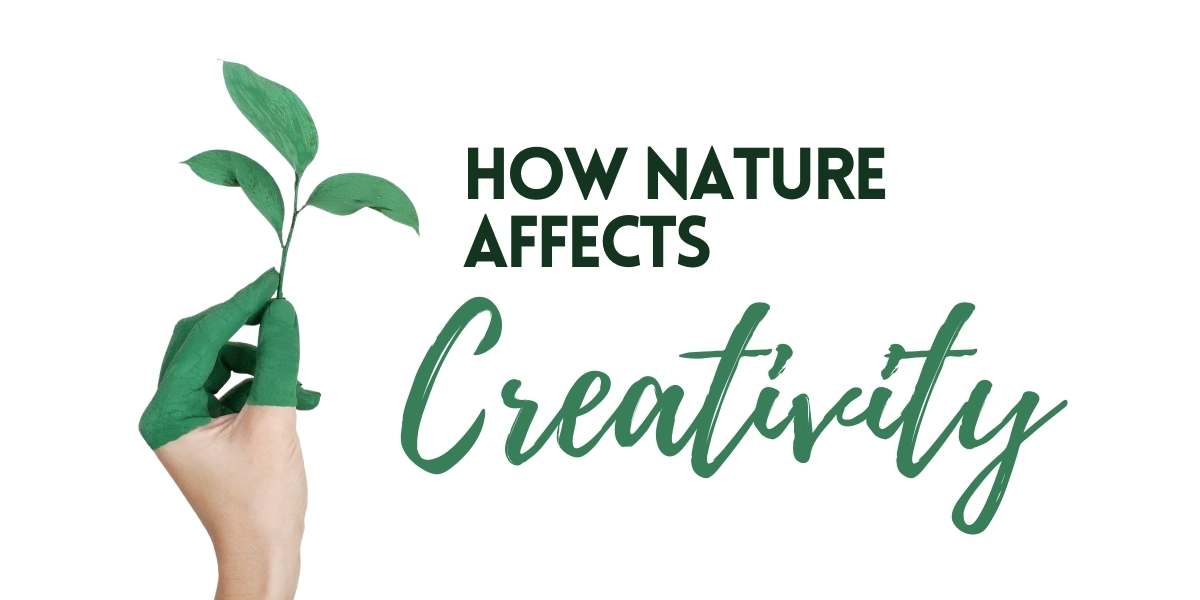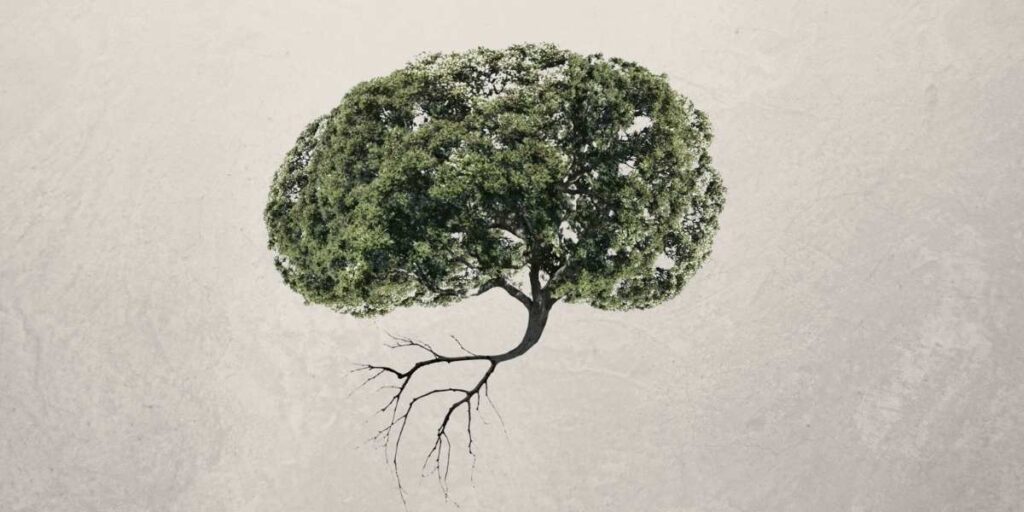It seems that nature affects creativity in significant ways for a lot of people.
Often, the norm of being expected to stay inside all day on the computer can lead to a lack of inspiration.
After all, creativity demands a lot from us mortals.
It’s almost a magical process where we catch these seedlings of ideas, plant them in a nourishing space and work tirelessly to nurture them until they finally grow into these beautiful creations for all to see.
Sound familiar?
Although there isn’t much solid data on how nature affects creativity, many interesting theories and small studies done with artists have helped explain why being outside has the power to inspire us like nothing else.
*Disclaimer: All of the opinions and content presented in this post are not professional advice and are true to the best of the author’s knowledge. This post is meant for inspirational and entertainment purposes only.*
Nature has no ‘shoulds’
As artists, we often fall into pits of guidelines. So much so, we lose the freedom that creativity needs. It’s clear how nature is a lot less structured than we are in our day to day. It grows through authenticity and instinct, rather than pressure or comparison. And in nature, timelines aren’t judged, opinions don’t matter. This is a lesson nature can teach us to help get us out of our boxes, and back to seeing the bigger picture. One creator that took part in a Danish study on how nature affects creativity mentions how:
“The forest provides a high ceiling; it’s a lovely place to be. Being able to see infinitely far away over the water makes you let go of all the things you have to do. [. . .] in nature you are allowed to think wild ideas, and big thoughts, and dream yourself away into one’s inspiration where it all starts to get exciting. “ (Silversmith, Woman/39)
Connects us to something bigger
Many artists mention how getting out into nature helps them to see how much the world is connected. It can make us feel a part of something larger. That their creative answers are out there. It seems to help bring people into a headspace that naturally allows creativity to flow.
“When I get carried away by the magnificent scenery, I feel like being part of something bigger–it is the same as creativity and it proves a feeling of happiness”. (Actor, Woman/37, personal communication)
Even Stephen King talks about his writing as if he’s an archaeologist. Digging for the bones of the story he’s trying to tell, and if it’s meant to be, it’s already there waiting to be found.
Improves attention
Another possible way nature affects creativity could be that it helps to improve our attention. There’s a theory called Attention Restoration Theory (ART) which talks a lot about how nature can help us feel refreshed from the stress of our urban lifestyles. In today’s world, it’s said that our minds consume about 11 million bits of information a second when performing simple day to day tasks, and our minds can barely process 50. All of that incoming information still trying to be understood can be quite draining. But when we’re in nature, ART says we tend to have more of what’s called “soft fascination”. We see nature in a light of passive interest and fascination, allowing us to rest our thinking minds.
With clearer and less distracted minds, it can support us in problem solving and coming up with creative solutions.
We channel our “affective side”
Nature helps give us a feeling of safety, solitude and peace. Many participants in the same Danish study mentioned how seeing environments that are spacious, untouched and filled with peaceful sounds help open the mind. It allows a feeling of openness to help solutions and ideas surface. Some theories explore how nature also allows us to confide in our feelings and emotions; our “affective” side. In city life, we are always using our brain’s logic instead of our natural, instinctual responses. We’re always fighting those instincts. This can contribute to tiredness and stress which seems to be relieved by being back in natural environments, and back to listening to our natural emotions.
Things are always in flux
Nature is always changing, and there’s almost endless possibilities, things to learn, see and do. Research has “found that being open to experiencing new things is directly associated with one’s level of creative thinking and output.” (Glass 2020), nature proves an amazing place to get those sorts of new, diverse perspectives. When we are immersed in different ecosystems and around different species that all interact in different, interesting ways, there’s endless opportunity to be inspired.
When a group of artists were asked if nature affects their creativity, they all agreed saying the “wild ideas” can only come from being placed in wild, different circumstances.
“In nature nothing is locked, it changes every day. It appeals to curiosity, alertness, and presence.” (Designer/consultant, Man/37)
Playfulness and experimentation
Playfulness is essential for creativity. In nature, we can play and notice connections between different species and environments. It’s great for practicing a genuine level of interest, curiosity and playfulness that we can then apply when we sit down to create. It inspires us to let go of pressure or logic, and focus on being; observing. We lose this in the city because we’re always directed by stop lights and signs. Everything in the city is built with a purpose in mind.
Subjects in the same Danish study all believed that the most natural, untouched places, that aren’t like recreational areas outdoors where you’d find families and kids, is where their creativity thrives.
In these kinds of spaces, we can interpret them and interact with them however we want. Nothing is made for a purpose other than to simply grow and create life.
“Just the thought that nature does not want anything from me, it is just there. I can feel that it connects me to the state of mind that I have when I am creative”. (Actor, Woman/49, personal communication)
Problem Solving
In nature, there’s always creative solutions. Mother nature is often something we draw inspiration from more from than we know, and many inventions have been inspired by nature. For example, the big, revolutionary bullet train’s design was inspired by the Kingfisher bird.
Often when we are in a conflict, our minds are confined. We get “tunnel vision”. If you know this feeling, you know it’s hard to look at the big picture and think of creative solutions. We’re too constricted to a narrow piece of the whole.
Being in nature helps to show us that “whole”. We can watch how it solves its problems, and use similar ideas to solve our own.
“I use nature in a creative process to access the answers, which are already within me. It can help me listen, and therefore I often use nature in the phases, where I don’t have the answer.” (Designer/Consultant, Man/37)
Boosts health and mood
We all know being outside can be a mood booster. One study says that 2 hours in nature a week can have significant benefits on your health and overall wellness. The optimal benefits before remaining stagnant were 3.5-5 hours a week.
Positive mindsets can greatly affect our creative abilities. The Broaden and Build Theory outlined in the article written by Positive Psychology says it allows us the space to hold ideas and be more innovative. Negativity can often feel heavy, foggy and draining, where a positive mood feels light and airy.
As if our mind goes from being a cave to the wide open sky.
According to this theory, that’s how we can be better at conflict resolution, collaboration and it can open the doors to attracting new people into our lives. We can stay more open to ideas, ultimately helping us make better decisions and approach situations more creatively.
Apparently even having a single plant in the room can positively affect our productivity within creative activities.
So, if you’re finding your inspiration has gone a bit stale from these past, long, winter months, getting out into nature might just be what you need to help jolt your muse out of hibernation!
References:
https://positivepsychology.com/attention-restoration-theory/
https://www.bbc.com/news/av/science-environment-47673287
https://positivepsychologynews.com/news/cordele-glass/2020012440097



0 Comments